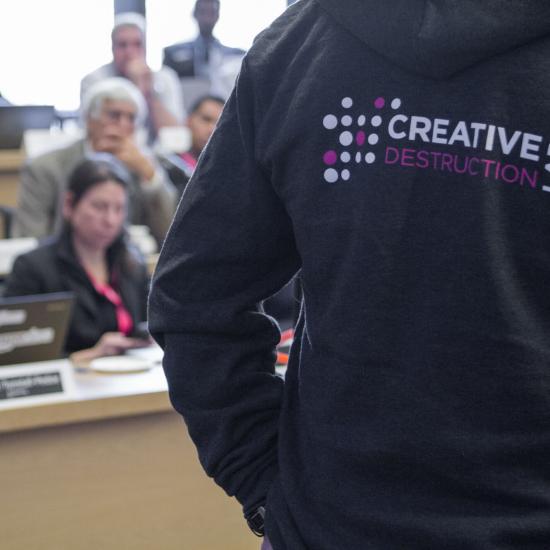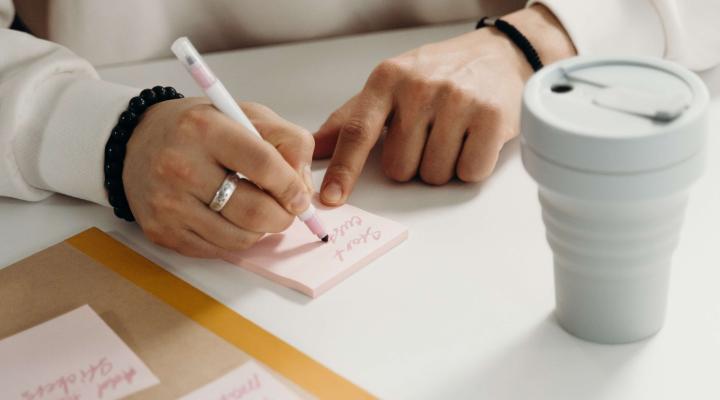It has been a tricky year for startups.
The economic rigours of Covid-19 mean there has rarely been a riskier time for them to launch and scale their ventures. And yet, the archetypal characteristics of a startup mindset - problem-solving; an appetite for risk; ability to bring innovations to market quickly - are arguably what is needed to confront the health and economic challenges posed by the pandemic.
With this in mind, the Creative Destruction Lab (CDL) delivered CDL Recovery this summer, a programme aiming to accelerate entrepreneurs providing solutions to the Covid crisis.
Ninety-nine companies were selected from 45 countries. The programme was entirely virtual and brought together over 400 mentors from the CDL network and over 50 MBA students from five universities. Not only did we witness the emergence of a new paradigm for testing (one which is likely to play a key role in the economic recovery of Covid-19), but we also unearthed new lessons for startups and the role they can play in the crisis.
The biggest theme for the 99 companies was testing for Covid-19 but other startups chose to address several key challenges of the pandemic. Some of these were therapeutic and medical challenges (drug development; vaccines etc), telemedicine (spanning cardiac monitoring to mental health) or clinical tools such as predicting illness progression or managing hospital resources. There were solutions to facilitate commerce, such as monitoring compliance to Covid-19 rules at work. Several companies also tackled issues of social distancing and track and trace.
Building a new testing paradigm
A central theme that emerged from CDL Recovery was the need to build cheaper and easier-to-use testing solutions for Covid-19. It is hoped that this could play a key role in the economic recovery from this pandemic and future viruses too.
The traditional clinical testing approach - such as PCR testing where samples are sent to a lab - is slow, expensive and requires specialised expertise in hospitals and laboratories. Some CDL Recovery companies (15 companies focused on new testing approaches) wanted to take testing away from this clinical setting and make it so ubiquitous that the general public could receive frequent answers to the one question they wanted to know about Covid-19: 'Am I infectious?' The tests had to be rapid, inexpensive and easily deployed without the need for specialised, trained staff and a move away from swab tests which are considered unpleasant and difficult to administer.
Another difference was the electronic data capture of test results. Current procedures rely on manual data entry, yet roughly half of our testing ventures had integrated digital data management into their technology design. This could become important should verified tests be required for individuals to access facilities such as airports or factories.
Challenges for startups
CDL Recovery was launched with the aim of working with entrepreneurs who build Covid solutions. However, what the programme revealed is that pursuing a Covid strategy involves strategic trade-offs. One of the most hotly debated topics among our mentors was whether to advise companies for or against a Covid strategy. In the course of these debates, useful insights into this trade-off were gained.
Arguably the ideal candidates for the programme were those ventures that had Covid as their 'raison d’être’ - we estimated that this applied to 26% of all CDL Recovery companies. A more common scenario, applying to 40% of the companies, was that the Covid strategy complements the company’s core strategy. However, for an estimated 20% of companies, a Covid strategy distracted from their core business. Interestingly, the further along a company was in its development path, the more likely it was that the Covid strategy interfered with the core business. Put differently, pivoting is more difficult for scale-ups, as they have more to lose if they lose focus on their budding core businesses.
Mentors advised in favour of pursuing a Covid strategy if there was an economic opportunity, if a Covid-19 strategy could be complementary to the core business (we estimated this was the case for around 40% of CDL Recovery startups) or if Covid-19 had ruined their original market opportunity, and a pivot was necessary to reorient the business towards greener pastures.

Mentors played a crucial role in refining Covid strategies, and sometimes convincing founders to revamp their strategies altogether.
However, mentors advised against pursuing a Covid strategy for three main reasons: if the market was too competitive and the opportunities were dominated by larger, better resourced incumbents; if Covid-19 was a distraction to the core business (in some cases, the Covid application involved different customers and different go-to-market strategies that delayed progress on the core business) and finally if the timing wasn’t right and the startups were simply too late with their solutions.
How receptive were the entrepreneurs to the mentors’ advice? When the mentors encouraged proposed Covid strategies, founders largely agreed and pursued them. However, when the mentors discouraged their Covid strategy, or when there was disagreement among mentors, more than half of founders still stuck to pursuing a Covid strategy, although they often modified its direction.
It’s no surprise that entrepreneurs have a strong mind of their own and don’t always listen to all the advice they receive. Still, mentors played a crucial role in refining Covid strategies, and sometimes convincing founders to revamp their strategies altogether.
The CDL Recovery program provided a rich set of learning opportunities: participants not only witnessed the emergence of a new paradigm for ubiquitous infection testing but also gained insights into trade-offs necessary when developing a Covid-19 strategy alongside their core business. CDL Recovery showed that CDL has become a thriving, dynamic global community of mentors and experts that is deeply committed to supporting innovative entrepreneurs.




